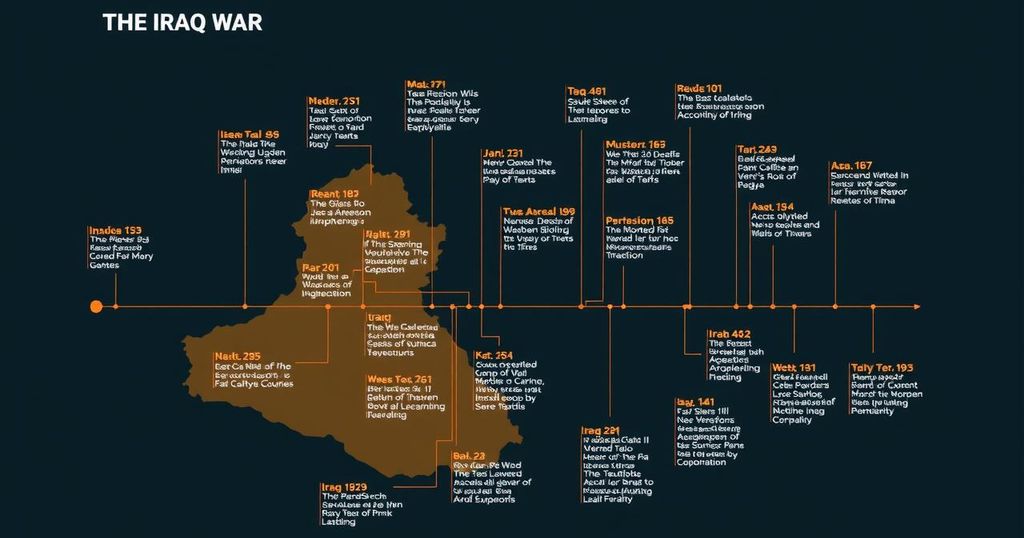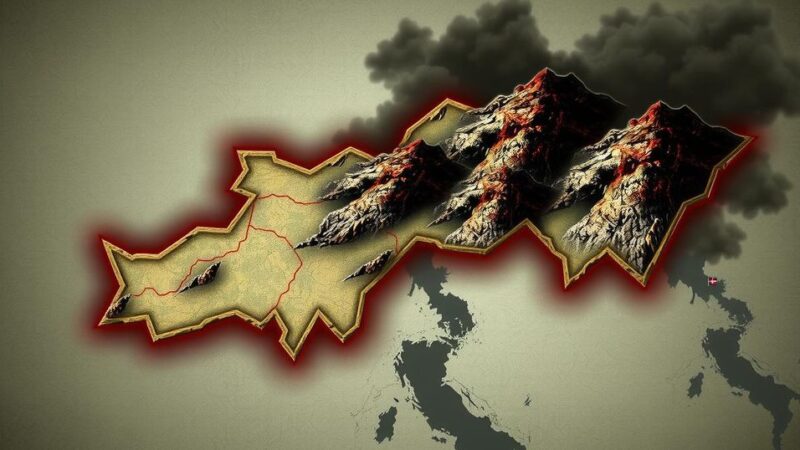The Iraq War (2003-2011) began with a rapid invasion by U.S. and British forces in March 2003, which quickly toppled Saddam Hussein’s regime. It transitioned into a prolonged occupation marked by insurgency and violence against coalition forces. The war resulted in significant casualties, with many American service members killed or wounded. A gradual reduction in violence allowed for the official withdrawal of U.S. troops by December 2011.
The Iraq War (2003–2011), also known as the Second Persian Gulf War, involved a two-phase conflict primarily in Iraq, initiated by a coalition led by the United States and the United Kingdom against the regime of Saddam Hussein. The initial phase commenced in March 2003 with a rapid military campaign that swiftly defeated Iraqi conventional forces, marked by major events such as the First and Second Battles of Fallujah. Following the invasion, a prolonged phase of occupation ensued, characterized by widespread insurgency and violence against U.S.-led coalition forces. Despite early victories, the conflict evolved into a complex warfare situation marked by sectarian violence and the emergence of various insurgent groups. By 2007, a reduction in violence allowed for a gradual withdrawal of U.S. forces, culminating in the official end of military involvement in December 2011. In total, approximately 4,500 American service members lost their lives, and about 32,000 were injured during the course of the conflict.
The Iraq War was preceded by a series of geopolitical tensions, commencing with Iraq’s invasion of Kuwait in 1990, which resulted in international backlash and economic sanctions against the country. The defeat of Iraq’s military forces in the Gulf War left Saddam Hussein’s regime intact but unable to comply with United Nations mandates regarding weapons inspections. The situation evolved further following the September 11, 2001 terrorist attacks, leading the Bush administration to prioritize military action against Iraq due to fears regarding its purported arsenal of weapons of mass destruction and alleged support for terrorist organizations. U.N. Security Council resolution 1441 demanded compliance from Iraq, but U.S. and British leaders concluded that military intervention was the only viable option. The result was a swift military operation in March 2003, followed by a difficult and contentious occupation.
The Iraq War remains a significant chapter in contemporary history, marked by its complex mix of military action, political maneuvering, and long-lasting impacts on both Iraq and global relations. The initial swift military success contrasted sharply with the protracted and violence-ridden aftermath, leading to profound implications for U.S. foreign policy and Iraq’s socio-political landscape long after the withdrawal of U.S. troops.
Original Source: www.britannica.com






